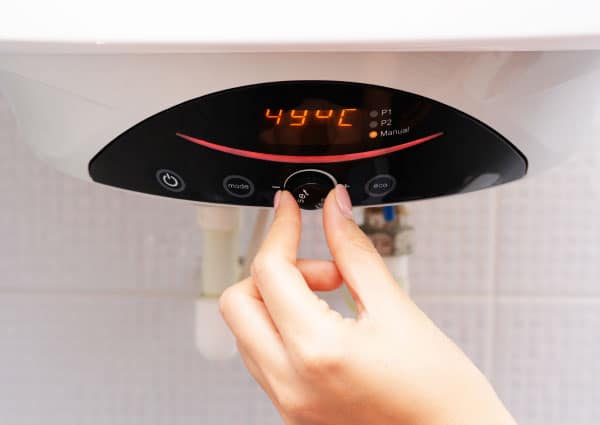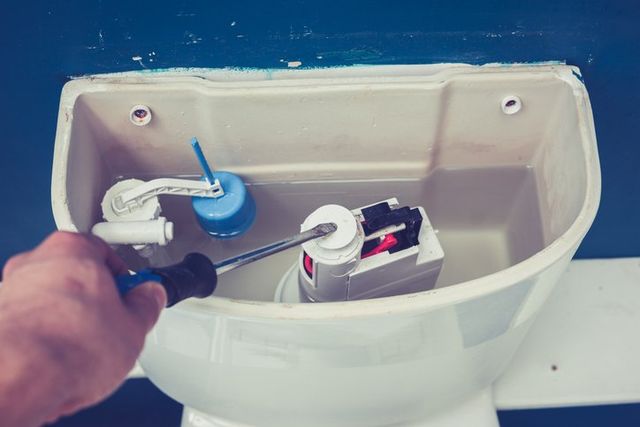Tackling the Typical Water Heater Crisis Scenarios
Tackling the Typical Water Heater Crisis Scenarios
Blog Article
We have found this article pertaining to Is Your Water Heater Leaking? directly below on the internet and believe it made good sense to talk about it with you in this article.

A water heater is one of one of the most essential basic devices that can be discovered in a residence. With hot water heater, you don't need to experience the anxiety of home heating water manually every single time there is a requirement to take a bath, wash, or the recipes. Nonetheless, there is constantly a possibility that your hot water heater would act up just like many mechanical devices.
It is very important to note any kind of little breakdown and also tackle it rapidly before things leave hand. Most times, your water heater starts to malfunction when there is an accumulation of sediments as a result of continual use. As a preventative measure, routine flushing of your hot water heater is recommended to prevent sediment accumulation and avoid practical failure.
Common hot water heater emergency situations and exactly how to take care of them
Dripping water heater storage tank.
A leaking storage tank could be an indication of corrosion. It could create damage to the flooring, wall as well as electric gadgets around it. You can even go to risk of having your home flooded. In this scenario, you ought to switch off your water heater, enable it to cool, and meticulously look for the resource of the trouble. At times, all you need to do is to tighten a few screws or pipeline connections in cases of minor leaks. Yet if this doesn't function and the leakage lingers, you could require to utilize the services of a specialist for an appropriate replacement.
Varying water temperature level.
Your hot water heater could begin producing water of different temperatures typically ice cool or scalding warm. In this situation, the first thing you do is to make certain that the temperature level is set to the preferred degree. If after doing this, the water temperature level keeps transforming throughout showers or various other activities, you may have a defective thermostat. There might be a requirement to replace either the heating or the thermostat system of your hot water heater.
Too little warm water
It might be that the water heating unit can not support the warm water demand for your apartment. You can upgrade your water heating unit to one with a bigger capability.
Discolored or smelly water
You require to recognize if the concern is from the water or the container resource when this takes place. If there is no amusing scent when you run cold water, then you are particular that it is your water heater that is defective. The stinky water can be brought on by corrosion or the buildup of germs or sediments in the water heater tank. You can try flushing out your storage tank or replacing the anode if the trouble persists when you notice this. The function of the anode is to clean germs from your storage tank. Given that the anode pole substitute requires an extensive expertise of your water heater, you will need the assistance of an expert.
Verdict
Some homeowners disregard little caution and also minor faults in their water heater unit. This only causes additional damages and also a feasible total failure of your home appliance. You should take care of your hot water heater faults as quickly as they come near stay clear of even more expenses as well as unnecessary emergency problems.
With water heating systems, you don't need to go through the stress of home heating water by hand every time there is a need to take a bath, do the washing, or the meals. Your water heating system might start producing water of different temperatures typically ice scalding or cool hot. It may be that the water heating system can not support the warm water need for your apartment or condo. If there is no funny odor when you run chilly water, then you are particular that it is your water heater that is malfunctioning. The smelly water can be caused by corrosion or the accumulation of microorganisms or sediments in the water heater storage tank.
What’s Wrong With My Water Heater?
Not Enough Hot Water
You probably encounter this problem in the shower or while washing dishes. As you run your water, you’ll notice it starting to cool down. Turning up the hot faucet may not work, or it may only heat the water for a short period. Your hot water probably comes back and works normally one or two hours after you use it up.
If you’ve never had enough hot water, your heater may be too small for your home. If you haven’t had a problem until recently, there’s probably something’s wrong with your heater’s thermostat. Try adjusting it to see if you can feel a difference. Even if the thermostat’s working, the heating element itself could have burnt out. It’s also possible that a clog has restricted water flow into or out of the heater. Luckily, none of these problems are hard to fix, as long as you call them in early.
Water is Too Hot
Unregulated water heaters can make water dangerously hot. You probably have this problem if you’ve been scalded by your hot water. It’s also a likely culprit if you have trouble getting your faucets to produce a comfortable temperature. This problem is easy to fix, but it can also be a serious health hazard if you don’t address it. If you think your water is too hot, don’t doubt yourself; look into it!
Start by finding your heater’s thermostat and mark its position with a pen. Turn the thermostat to a cooler setting. Wait a couple hours to see if the problem is solved. If it isn’t, listen for boiling in the tank and look for water that comes out of the faucet steaming. In those cases, your temperature-pressure relief valve may be malfunctioning. This is a serious problem that can be dangerous, so you should have it looked at right away.
Discolored or Smelly Water
If all your water looks rusty or smells weird, there’s probably a problem with your pipes. If only your hot water looks weird, however, your water heater is probably at fault. Hot water discoloration comes in several varieties. It could look orange or brown-ish, taste rusty, or feel grainy. It could also look yellow or green-ish and taste gross or feel slimy. Either way, it’s a sign that there’s something wrong with your water heater’s tank.
Usually, hot water discoloration means sediment has built up in your tank. Sediment is made up of hardened minerals that accumulate on the inside of the water heater’s walls. When enough sediment builds up, it causes all kinds of problems–including your discolored water. Try flushing your water heater tank to clean out built up sediment. If the water still tastes rusty, your tank’s rust-preventing anode rod may have worn out. A pro can replace an anode rod easily, but without one, your tank could rust beyond repair relatively quickly.
Leaking
Water heaters can leak from several different places, and each leak means something different. If the leak is coming from a pipe above the heater, it’s possible the tank itself hasn’t been compromised. The cold inlet, hot outlet, and T&P pipes could all leak from above. Try tightening the problematic valve. If that doesn’t work, then the valve or pipe will have to be replaced.
If the leak is coming from the bottom of the tank, it’s important to determine exactly where it is. The leak could be coming out of the drain valve or your T&P valve below the tank. You can replace those valves and preserve the tank itself. If you notice the water tank itself leaking, however, that probably means it’s corroded beyond the point-of-no-return. Leaking water heaters are a big deal, so you should get yours replaced ASAP.
https://www.punctualplumberdallas.com/blog/whats-wrong-water-heater/

I hope you liked our post about Warning Signs You Need Water Heater Repairs. Thanks so much for taking time to browse our content. Sharing is good. Helping people is fun. Thanks for your time. Visit us again soon.
Schedule Appointment Report this page